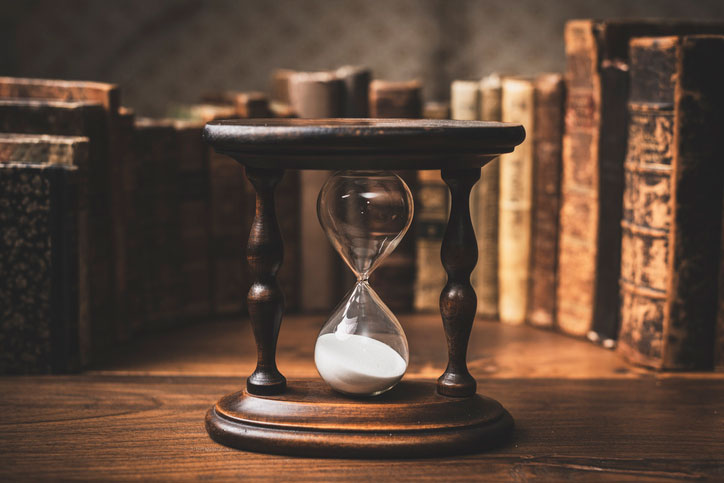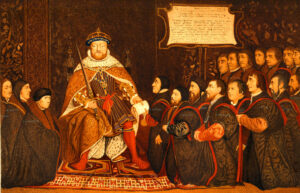Written by Scott Wilson

The genre of fiction in general can be seen as a way of transporting readers to different realities. In literary fiction, that may simply be through characters or life experiences that are outside the ordinary; in science fiction, it can be realities that have not yet come to pass; for fantasy, those that never could.
But in the genre of historical fiction, the writer’s job is to take readers back to a reality that once did exist, and to make it real to them again. Historical fiction tells tales that didn’t happen, but in settings and times, and sometimes with characters, that did.
In doing so, historical fiction writers get a shot at revising both our appreciation for history, and for ourselves. By bringing historical experiences realistically to life, they cause readers to place themselves in the circumstances of generations past.
In some genre-bending cases, as with Diana Gabaldon’s Outlander series, multiple eras of history are explored, with meta-historical commentary provided by the characters.
At the same time, every work of historical fiction is inevitably a reflection of the time in which it is written as well as when it portrays. The emphasis, style, and subject of historical fiction novels also bears on the now. By comparing our own thoughts and sensibilities to those of historical characters, we come to a better understanding of our own era. We see the similarities and the differences; we learn what has been lost and what gained.
That makes writing historical fiction a powerful proposition. But it’s also one of the most exacting and demanding types of fiction writing to pursue. And that’s a strong reason to put a creative writing degree into your own historical record if this genre is your goal.
The History of Historical Fiction Has Murky Origins
 Depending on how you define it, historical fiction may be a relatively modern innovation, or among the oldest of literary traditions. In the form that we most often encounter it today, historical fiction emerged as a part of the Romantic movement, looking back to earlier times and inventing tales to tap into nostalgia and nationalism, such as Walter Scott’s Rob Roy and Ivanhoe. In the United States, James Fenimore Cooper told similar stories of the American frontier in the pre-Revolutionary period. And Alexandre Dumas created The Count of Monte Cristo as a rollicking adventure set during the Hundred Days and the Bourbon Restoration and filled with the undercurrents of Bonapartism and echoes of the Revolution.
Depending on how you define it, historical fiction may be a relatively modern innovation, or among the oldest of literary traditions. In the form that we most often encounter it today, historical fiction emerged as a part of the Romantic movement, looking back to earlier times and inventing tales to tap into nostalgia and nationalism, such as Walter Scott’s Rob Roy and Ivanhoe. In the United States, James Fenimore Cooper told similar stories of the American frontier in the pre-Revolutionary period. And Alexandre Dumas created The Count of Monte Cristo as a rollicking adventure set during the Hundred Days and the Bourbon Restoration and filled with the undercurrents of Bonapartism and echoes of the Revolution.
There is never going to be any lack of history to go around, and the psychological drivers of curiosity and nostalgia ensure audiences for stories set in the past.
Wherever and whenever the genre came about, it has had an enduring appeal. Historical fiction writers have the ability to make history fun and understandable to modern audiences. Neal Stephenson’s The Baroque Cycle explores the development of modern financial systems and the root of modern physics and logic along with rollicking, globe-circling adventures that offer glimpses into societies as diverse as feudal Japan and Spanish America.
Although historical fiction has to call back to popular understanding or illuminating detail of the period in which it’s set, it’s a genre that has some surprising elasticity in it. Alternate history works like Philip Roth’s The Plot Against America explore a strong curiosity about “what if” moments in the past. And Susanna Clarke’s Jonathan Strange & Mr. Norrell goes even further afield, speculating about a wholly invented fantasy of magic blended together with the culture and society of England circa the Napoleonic Wars. Both books won prizes and were adapted for television.
Historical Fiction Writers Have Both Guard Rails and Open Roads Ahead of Them
For writers, this offers a broad palette that combines inspiration with consistency. While fiction can fill in the blanks, readers expect that the historical record generally remain intact. History offers plenty of opportunities for new exploration and interpretation, but there are also lines that writers must color within to be taken seriously.
Historical Fiction Offers Multiple Perspectives on What Happened and Why
 Hilary Mantel’s Wolf Hall takes readers back to Tudor England and fictionalizes the very real story of the ascent to power of Thomas Cromwell in the court of King Henry VIII.
Hilary Mantel’s Wolf Hall takes readers back to Tudor England and fictionalizes the very real story of the ascent to power of Thomas Cromwell in the court of King Henry VIII.
Cromwell’s story isn’t a new one in historical fiction, having also featured in Robert Bolt’s play A Man For All Seasons. Comparing the two works, which cover many of the same events, is a great way of understanding what makes historical fiction an exceptional genre. Using the same historical characters and events, Bolt shows Cromwell as a cold, calculating political operative betraying Sir Thomas More to advance his own position in the king’s court, while Mantel portrays him as a principled man attempting to balance the complex intersections of politics and religion.
While readers may have their preference for the interpretations of the Cromwell’s actual historical record, the fact that both Wolf Hall and A Man for All Seasons are plausible, award-winning works of historical fiction shows the range of possibility the field opens in our understanding of both history and humanity.
But there is also liberation in having a wealth of historical detail available. While some fiction writers revel in creating new and unique worlds, for authors who are focused on character and plot, world-building can be a nuisance.
Writing historical fiction takes that off the table—the world was already built, and all that remains is for the author to populate and tinker with it.
College Degrees in Creative Writing Develop Both Historical Knowledge and Writing Craft
 It’s hard to find a prominent historical fiction writer who doesn’t have a college degree behind them. It’s a genre that has high expectations in terms of both attention to historical detail and interpretation. Those are both qualities that are tough to develop outside a college setting.
It’s hard to find a prominent historical fiction writer who doesn’t have a college degree behind them. It’s a genre that has high expectations in terms of both attention to historical detail and interpretation. Those are both qualities that are tough to develop outside a college setting.
There can be a thin line between writing historical fiction and writing history. You have to be able to paint a convincing and detailed picture of life in the era in which you are working. That means research, research, and more research.
Creative writing programs don’t focus exclusively on history, but as liberal arts degrees, they do come with plenty of requirements and opportunities to better develop your familiarity with subjects like:
- Social and cultural history
- Anthropology
- Art history
When you put that knowledge together with advanced instruction in the craft of writing strong, believable fiction across a variety of genres, you have an excellent shot at preparing yourself for a career in historical fiction writing.
Many Creative Writing Programs Offer Specific Courses in Historical Fiction
 Many creative writing programs offer some specific instruction in writing historical fiction. Although a full concentration may not always be available, you’ll often find elective classes or workshops, particularly in more advanced degree programs, that dive into the details of historical fiction writing.
Many creative writing programs offer some specific instruction in writing historical fiction. Although a full concentration may not always be available, you’ll often find elective classes or workshops, particularly in more advanced degree programs, that dive into the details of historical fiction writing.
These courses may be the entirety of a specialized certificate program in creative writing, or serve as a sort of specialization option in a larger and longer degree program. They deconstruct historical writing in particular, exploring aspects such as:
- Conforming to known timelines and the historical record
- Deciding when and how far to adopt vocabulary and speech patterns from the time in which your story is set
- How to research your work
- Portraying modern attitudes and perspectives in the thoughts and actions of historical characters
College Is a Great Place to Both Learn and Learn To Interpret History
 More than most creative writing students, those focused on historical fiction will want to stay awake during classes on history and society. Some of the most impressive and successful historical fiction comes out of vast research efforts. Understanding life in the era you will be writing about is key, and for most writers that process begins in college.
More than most creative writing students, those focused on historical fiction will want to stay awake during classes on history and society. Some of the most impressive and successful historical fiction comes out of vast research efforts. Understanding life in the era you will be writing about is key, and for most writers that process begins in college.
Degrees in creative writing don’t focus on history, but if you are pursuing a bachelor’s or an associate degree, history and social studies come as part of the package. It’s a great opportunity to lean in to those studies, piling on electives and making use of the expert academics and research facilities you’ll find on campus.
Creative Writing Programs Develop Strong Habits in Reading and Research
 All good writers start out as readers. You learn your techniques, your subject matter, and your interests through reading. So creative writing programs come with stacks of material to read, both long and short form, in a wide range of genres and topics.
All good writers start out as readers. You learn your techniques, your subject matter, and your interests through reading. So creative writing programs come with stacks of material to read, both long and short form, in a wide range of genres and topics.
Much of your class time and many of your assignments will revolve around dissecting what you’ve read. You’ll come to understand why certain literary approaches resonate with readers, and how the mechanics of putting together story and character work in different styles.
You’ll also start to develop skills as a reader that will come in handy during your historical research. Skimming, analyzing, and comparing works are all techniques that you will learn in creative writing that will come in handy during your professional work as an author.
Writing Skills Are Developed to a High Level in Creative Writing Degrees
If you’re getting ready to start cracking on a thousand-plus page epic of historical fiction, you had better be confident in your ability to make the words flow. A creative writing degree will get you started down that path with almost constant writing assignments. Ranging from essays to short-form fiction to pieces of even longer works, you’ll spend hours and hours engaged in the most critical kind of practice for writers: writing.
Not only will these tasks get you in the habit of sitting down and chipping away at your word count every day, but they will also help hone your language, grammar, and plotting to get your point across. Constant reviews and revisions will allow you to develop your own sense of style and learn how to connect with readers through language.
Creating Believable Historical Figures and Plots Will Be Covered by Creative Writing Studies
 A key to succeeding in the historical fiction market is delivering readers believable stories and characters in a setting that really existed, scaffolded by events that are well-documented. This all creates a much higher bar for verisimilitude in historical fiction writing, a bar that can only be cleared with a well-honed sense of story and character development.
A key to succeeding in the historical fiction market is delivering readers believable stories and characters in a setting that really existed, scaffolded by events that are well-documented. This all creates a much higher bar for verisimilitude in historical fiction writing, a bar that can only be cleared with a well-honed sense of story and character development.
There’s no better place to develop that kind of story-telling skill than through a creative writing degree. You’ll break down and study famous examples of plotting and characterization from War and Peace to The Name of the Rose, learning how Tolstoy and Eco brought history to life through use of language, plot, and literary device.
The Internet Offers Modern Ways To Study for Historical Fiction Writing
Unless you are one of those die-hards who insists on writing with a feather quill pen on sheets of parchment, you’ll want to take a close look at online options for your creative writing studies.
All through history, writers have largely labored in solitude. That’s just as true today as ever, and it means that a traditional on campus creative writing course doesn’t actually add much to the experience. You’ll spend most of your time on your own anyway, meeting up with professors and classmates only to review your lessons or present your work.
With online courses, you still make those connections, but it will be through email, chat, and video conferences. That frees you up to work whenever and wherever you are most creative.
The occasional in-person workshop or other conference keeps you from becoming a complete shut-in and helps you make some of the vital connections that you might need to get ahead in the publishing industry later on. It’s a great combination that often costs less and delivers tremendous flexibility in picking the best possible program for your goals.
Finding the Right Creative Writing Degree Program to Launch Your Historical Fiction Career
 Finding the right degree program in creative writing to meet your needs as a historical fiction writer can be tough. You have a lot of options to choose from, both in terms of different schools that teach creative writing, and in deciding which level of education to pursue. Creative writing programs are all unique, and they are available at every level of higher education today.
Finding the right degree program in creative writing to meet your needs as a historical fiction writer can be tough. You have a lot of options to choose from, both in terms of different schools that teach creative writing, and in deciding which level of education to pursue. Creative writing programs are all unique, and they are available at every level of higher education today.
Certificate programs in creative writing are short studies with a tight focus. They don’t usually last more than a few months and have very limited coursework. On the other hand, they don’t cost as much as longer programs, and can provide a concentrated dose of training in exactly the subject you are interested in improving. These are good choices for current writers who already have a degree and want to brush up specifically in historical fiction.
Associate degrees in creative writing take two years to complete. They are split half and half between foundational writing coursework and more general studies, designed to offer a classic liberal arts education. They are a good starting point for anyone without a college education but who wants to explore a path to writing historical fiction.
Bachelor’s degrees in creative writing are four-year programs that include a traditional range of liberal studies along with in-depth English literature and writing coursework. These degrees offer extensive preparation in creative thinking skills alongside specific creative writing studies, qualifying you for all kinds of writing positions in any genre. They are a good fit for anyone looking to make a career as a writer.
Master’s degrees in creative writing take between two and three years to complete. The MFA, or Master of Fine Arts, in creative writing is often considered to be the ultimate in preparation for becoming a published author. With intensive study focused exclusively on the craft of writing, expert professors, and guest lectures and workshops with other published authors, they are appropriate for anyone who wants a high level of polish on their current writing skills.
Doctoral programs in creative writing can take anywhere from five to seven years to finish. In most cases, these programs are focused on the academic side of writing, training future professors to teach in the field. Some programs do offer a more writing-focused design, however, which can help you polish up a current manuscript or story idea for publication.
Of course, many historical fiction authors have degrees in other fields. If you are starting out with a degree in history, politics, or other social or cultural majors, you certainly have a leg up on the research side of historical fiction writing. But that doesn’t mean you won’t still benefit from a formal creative writing education.
That can take the form of a quick certificate program, or going on to earn a master’s in the field, depending on your commitment and goals.
New authors just starting out, on the other hand, will probably find an associate or bachelor’s degree to offer a good combination of instruction in writing itself together with the kind of education in history that will help in developing storylines and authentic details in their work.
Every college has its own approach and reputation in creative writing education. By assessing the faculty, the workshops and classes that are offered, and the types of careers that graduates have gone on to, you’ll get a pretty good idea of where to find the best fit for your own degree. Then you can go on to make your own history with the next great historical fiction bestseller.




